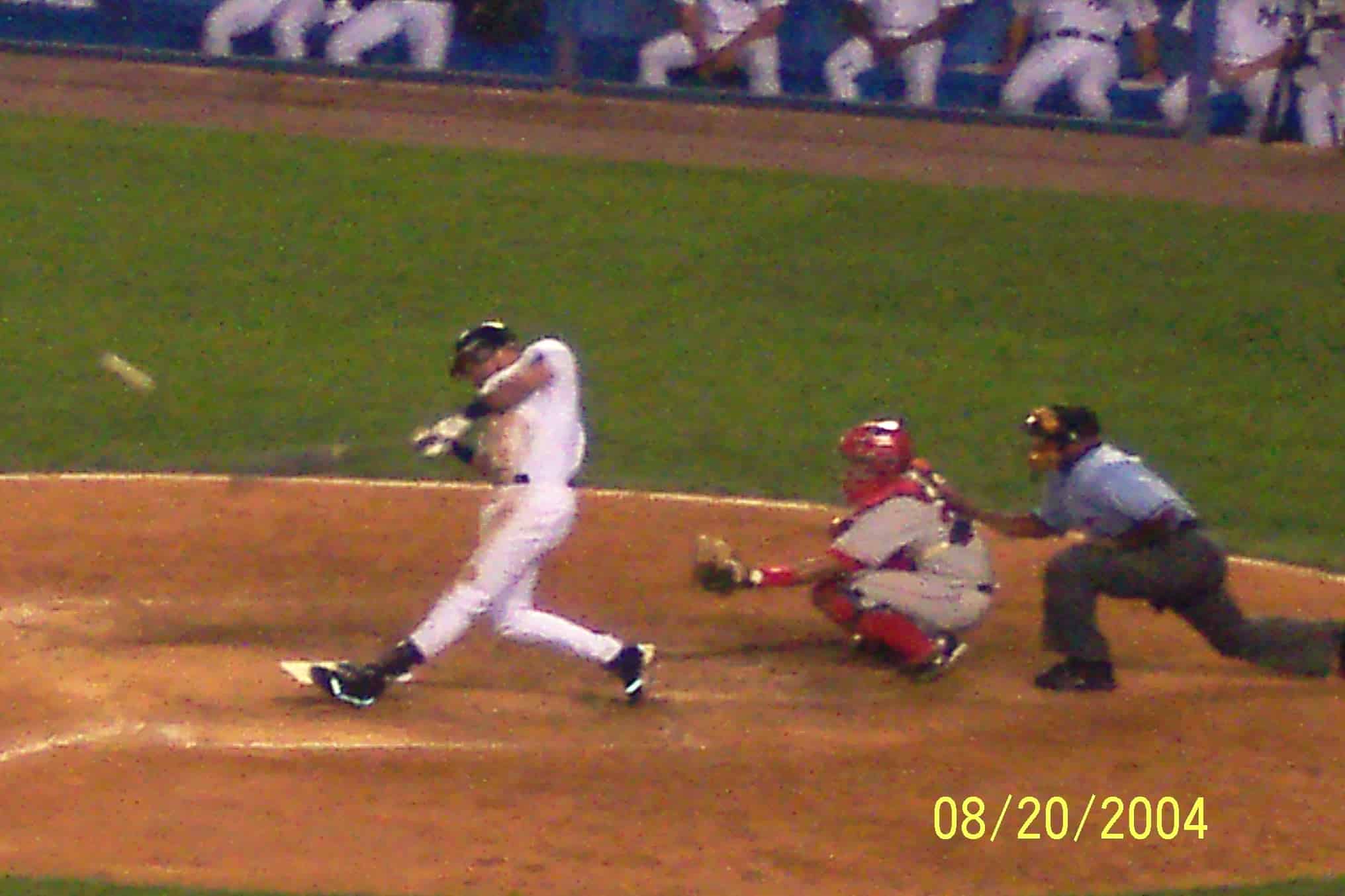 Rabid fan that I am, and with spring training just finished, I knew baseball had to be my blog topic so I could talk about the coming season, Derek Jeter’s recent retirement announcement, and the power of his presence and his play. Yankee Captain since 2003, Jeter has been the face of his team for more than a decade. Not only has he been a key part of recent Yankee successes, he has also helped hold the game together during a time of great upheaval—the period known as the steroids era. Those are just some of the reasons that The Strong prizes the Jeter jersey in the museum’s collection.
Rabid fan that I am, and with spring training just finished, I knew baseball had to be my blog topic so I could talk about the coming season, Derek Jeter’s recent retirement announcement, and the power of his presence and his play. Yankee Captain since 2003, Jeter has been the face of his team for more than a decade. Not only has he been a key part of recent Yankee successes, he has also helped hold the game together during a time of great upheaval—the period known as the steroids era. Those are just some of the reasons that The Strong prizes the Jeter jersey in the museum’s collection.
Drafted right out of high school, Jeter spent a solid four years on several minor league teams in pursuing his dream—to make it to “the Bigs.” His Tampa Yankees teammate Roger Burnett said of him, “He’s got that ‘it’ factor. There just wasn’t anything wrong with him, no reason not to like him.” That says something about the man, especially when they were all in fierce competition with one another for the few spots available. Eventually, Jeter made his way to the top of the minor league system, reaching the Columbus Clippers of the AAA International League by early 1995.
I don’t think I was one of the 3,531 fans at Rochester’s Silver Stadium on Sunday, May 15, 1995, to see the Columbus Clippers (featuring Jeter, Jorge Posada, and Mariano Rivera!) play the Rochester Red Wings. At that point, he was only one of hundreds of aspiring minor league players, hoping and praying for just one more promotion. His talent, dedication, persona, and drive finally got him that ultimate upgrade to what many consider to be America’s team, the New York Yankees, a mere two weeks later.
Jeter was promoted because he stood out from the crowd. Folks noticed him because he was respectful and played hard each and every day, not because he was a home-run hitter. While the hits by some of his “juiced” associates could be said to have helped renew interest in a game that was waning on the national stage after the 1994 players strike, Jeter’s daily performances, embellished by his innate talents and inner drive, earned him a reputation in the minds of most true fans as a genuine, nose-to-the-grindstone kind of player. His outstanding play (called “the flip”) on October 13, 2001, against the Oakland A’s is considered by many as one of the greatest plays of all time—one that saved the American League Divisional Series for the Yankees and led all fans to one great World Series later against the Arizona Diamondbacks.
 Jeter’s devotion to his team and the game he loves are readily apparent every time he steps onto the field. His approach to playing the game has positively influenced all of baseball and few have achieved his status in the game. Like the Orioles’ Cal Ripken before him, he has become a revered icon. He too has earned a much-deserved position in the National Baseball Hall of Fame in Cooperstown (plus his own breakfast cereal).
Jeter’s devotion to his team and the game he loves are readily apparent every time he steps onto the field. His approach to playing the game has positively influenced all of baseball and few have achieved his status in the game. Like the Orioles’ Cal Ripken before him, he has become a revered icon. He too has earned a much-deserved position in the National Baseball Hall of Fame in Cooperstown (plus his own breakfast cereal).
We can’t all be Derek Jeters. But we can be like him by following his lead. How we play the game says so much about who we are as individuals. Fair and square? Down and dirty? Mean and nasty? The choice is ours.
 Hours 10 a.m.–5 p.m. | Fri. & Sat. till 8 p.m.
Hours 10 a.m.–5 p.m. | Fri. & Sat. till 8 p.m.